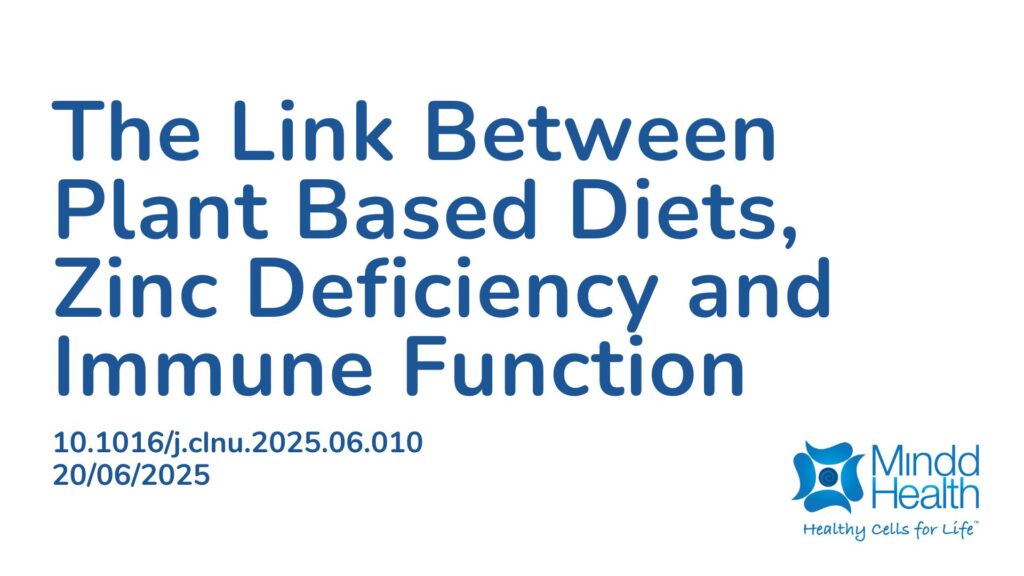Summary:
Zinc is essential for proper immune responses and is primarily obtained from animal-based foods. As vegetarian and vegan diets become more common, the potential for zinc deficiency and its impact on immune function, particularly the response to viruses, is a growing concern. This study examined how zinc deficiency affects antiviral immune function in people following plant-based diets. Researchers assessed zinc levels in omnivores, vegetarians, and vegans using blood tests and dietary questionnaires. They then measured IFN-α production, a type of signaling protein known as a cytokine. IFN-α is part of the innate immune system, the body’s first line of defense against viruses. When immune cells detect a virus, they produce IFN-α to help slow the virus, alert nearby cells, and activate other immune cells to fight the infection. Participants with low zinc levels received short-term oral zinc supplements, and immune markers were reassessed. The findings showed that vegetarians and vegans had a higher risk of zinc deficiency, which was linked to reduced IFN-α responses. Zinc supplementation corrected the deficiency and restored IFN-α production. These results suggest that zinc plays a key role in regulating antiviral immune responses by supporting immune activity. Ensuring adequate zinc intake may be important for maintaining immune health, especially in individuals following plant-based diets.
Abstract:
Background & aims: Sufficient zinc status is crucial for undisturbed immune function. Further, dietary zinc requirements are mainly covered by animal products. Consequently, plant-based diets have been repeatedly linked to zinc deficiency. In the light of increasing popularity of plant-based diets, elucidating the impact of zinc deficiency on the innate immune system of vegetarians and vegans is of great interest. Although it has been previously shown that interferon (IFN) -α response towards viral stimuli can be enhanced by administering zinc in vitro, the underlying molecular process remains unknown. In this project, we investigate the effect of short-term, oral zinc supplementation in vivo on antiviral immune response and describe the potential molecular mechanism behind zinc-dependent interferon-α production. Methods: Zinc status of omnivore, vegetarian and vegan subjects was determined by serum zinc measurement and a food frequency questionnaire (FFQ). Antiviral IFN-α response was measured in whole-blood and peripheral blood mononuclear cells upon viral stimulus. Furthermore, expression of interferon regulatory factor (IRF) 3, a positive regulator of IFNα, was quantified in each cohort. If zinc-deficiency was detected, participants received oral zinc supplementation and tests were repeated afterwards. Results: We observed a high prevalence of imminent or manifest zinc-deficiency among vegetarians and vegans. Compared to omnivores, IFNα response and IRF3 levels were significantly reduced. Moreover, we were able to enhance zinc status, increase IRF3 expression and reconstitute IFNα response by oral zinc supplementation. Conclusion: We identified zinc-dependent IRF3 expression as an essential cellular mechanism behind impaired IFNα response in zinc deficient subjects. This may contribute to disturbed antiviral immunity and cause increased susceptibility to virus infections in vivo. Oral zinc supplementation effectively restored IRF3 and IFNα levels. Hence, nutritional interventions may become increasingly important in order to prevent health implications from micronutrient deficiencies among vegetarians and vegans.
Article Publication Date: 20/06/2025
DOI:10.1016/j.clnu.2025.06.010



